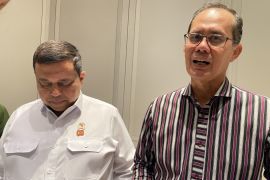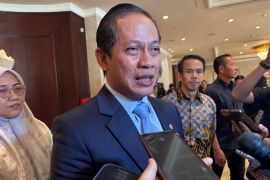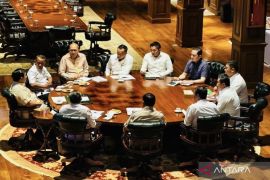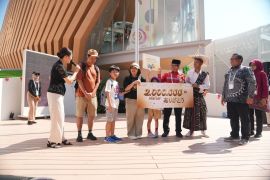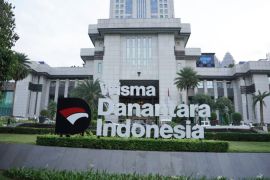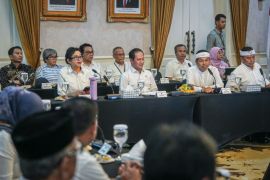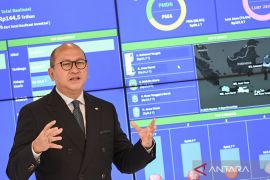Chairman of the Indonesian Chamber of Commerce and Industry (KADIN) Suryo Bambang Sulisto made the commitment at a meeting between the government and the private sector at the Bogor Presidential Palace on Tuesday.
He said the chamber came to the figure following a meeting among associations under the auspice of the chamber including the Indonesian Employers Association (Apindo), the Indonesian Builders Association (Gapensi), the Indonesian Automotive Manufacturers Association (Gaikindo), the Real Estate Developers Association (REI), the Coal Producers Association, and the Young Indonesian Businessmen Association (HIPMI).
"From the notes we have received at this moment, we commit ourselves to invest Rp1,350 trillion or about US$150 billion," he said.
The figure was likely to increase because it excluded investment from small and medium businessmen who were made up of 90 percent of the Indonesian businessmen, he said.
The investment commitment of Rp1,350 trillion (US$150 billion) only covered projects worth more than Rp1 trillion and most of the projects dealt with the agricultural and mining sectors, he said.
The investment commitment from the private sector might further increase if the government could overcome bureaucratic constraints and overlapping regulations, he said.
Earlier, President Susilo Bambang Yudhoyono said Indonesia would need more than US$200 billion in investment until 2025 to accelerate and expand economic development in Southeast Asia`s largest economy.
The government had originally targeted the investment needs at US$100 billion but later revised upward the target to US$200 billion after state-owned companies pledged to meet US$100 billion of it, he said when opening the meeting on Monday.
The two-day meeting brought together all ministers of the United Indonesia Cabinet II, district heads, governors and a number of businessmen. (*)
D013/S012/H-NG/B003
Editor: Jafar M Sidik
Copyright © ANTARA 2011
